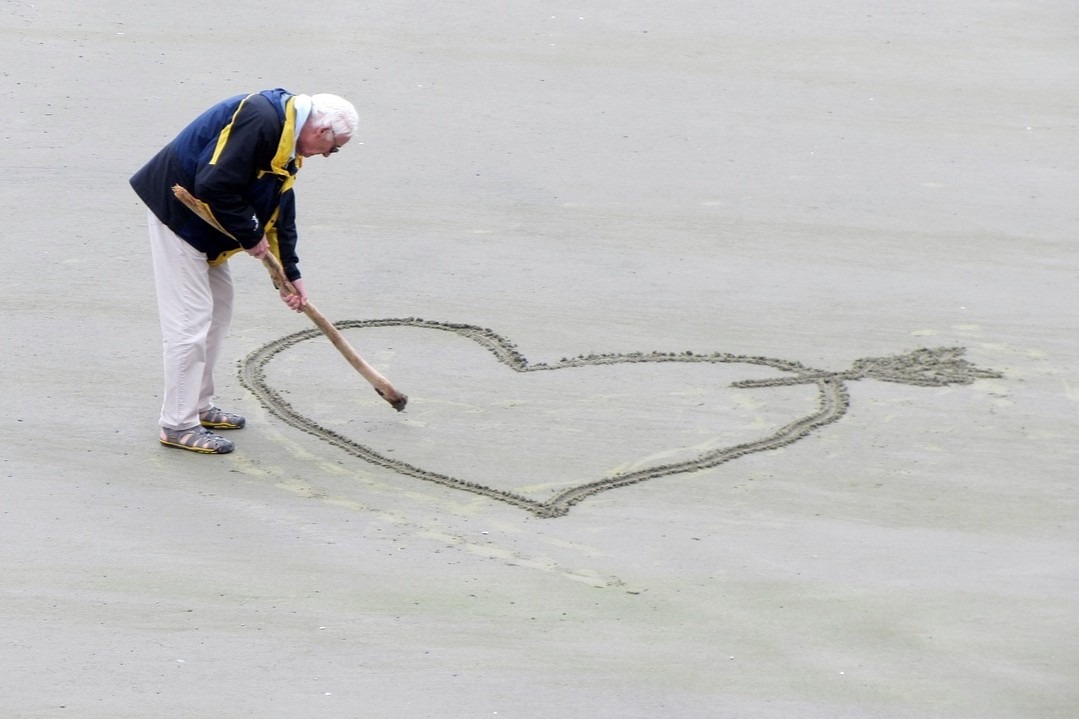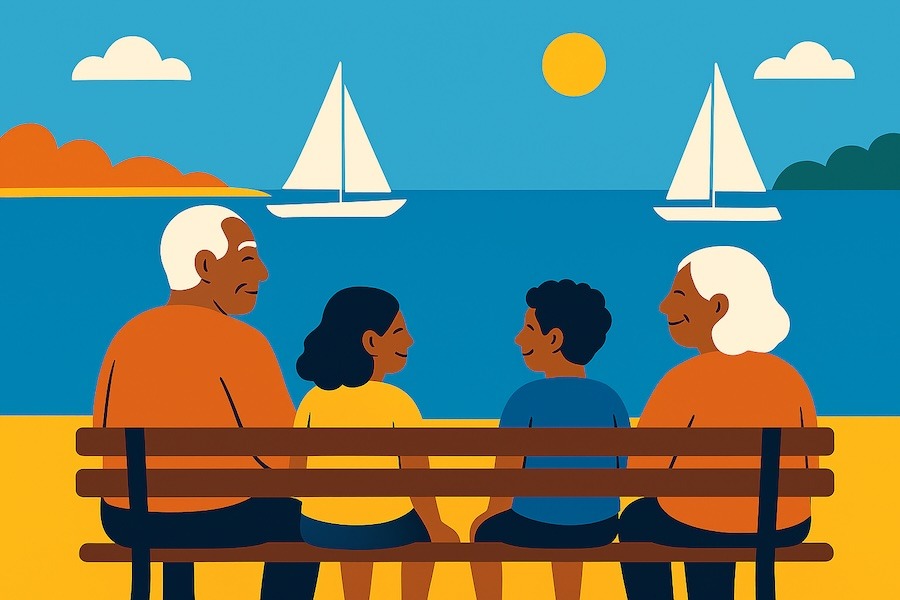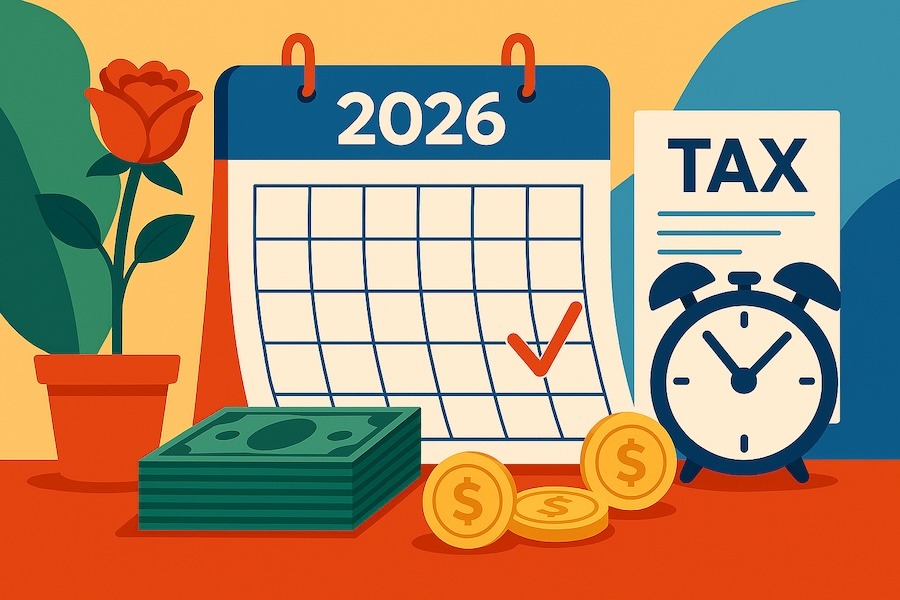Crafting a ‘Whole Life’ Retirement

When most people think of retirement, a sunny stereotype tends to surface. Think coastal caravan adventures, chasing the grandkids around the park, or leisurely strolls along quiet beaches. It's a comforting image, one that’s replayed in countless superannuation ads and retirement brochures. But what if that dream, while lovely, doesn’t quite capture the full picture? What if ticking off that final workday and securing the right savings target isn’t the last step but merely the beginning of something far more profound?
Take Bruce, 67, from Geelong. He retired after 40 years in engineering with a well-earned financial cushion, ready to embrace his freedom. For the first few months, it was everything he imagined: golf on Tuesdays, lunch with friends on Fridays, and plenty of slow mornings. But eventually, something began to nag at him. The freedom he’d long chased now felt aimless. Without realising it, Bruce had prepared for retirement on paper, but not in his soul.
Who Are You Without Your Job Title?
One of the quieter shocks faced by new retirees isn’t budget-related, it’s personal. For decades, jobs are more than jobs. They give us structure. They give us a name tag in society. So, when the routines stop and that title slips away, some feel an unexpected emptiness, a question hanging in the air: Who am I now?
This isn't rare. Known as “retirement shock,” this psychological gap can cause feelings of dislocation, especially for Australians who’ve poured much of their identity into their work. That’s why it's wise to start that self-reflection early.
Before you retire, try piecing together a “post-work identity board.” What did you love as a kid? What causes stir your heart? What skills do you still enjoy using? A few hours spent reconnecting with those old parts of yourself might offer surprising insight into who you're becoming, beyond your former profession.
Finding Your People Again
Workplaces aren’t just about tasks, they're social ecosystems. For many, colleagues fill in as mates, confidants, and lunch buddies. Retirement, while freeing, can quietly strip that layer of connection away.
But here’s the good news: your social circle doesn’t have to shrink; it just needs some nurturing. Contrary to the myth, community doesn't retire when you do. It's about being intentional.
Join that local bowls club you’ve always passed but never entered. Start a gardening group with your neighbours. If you’re feeling inspired, set up a trivia night at your local RSL. And don’t underestimate intergenerational bonds — whether it’s mentoring younger Australians stepping into your old field, reading to kids at a nearby school, or simply being deeply involved in your grandkids' lives.
For those living regionally, isolation can feel more pronounced, but technology can bridge that gap. Virtual meetups or online classes are not just for the young — retirees across Australia are finding connection in digital communities that cross suburbs and state lines.
From Productivity to Purpose
Some retirees feel restless not because they want ‘work’ back, but because they miss the feeling of contributing. Being productive and making a meaningful contribution aren't the same thing—and it's the latter that often brings genuine contentment.
There are countless ways to contribute post-work:
- Micro-volunteering, where you commit just a few hours a month to causes that matter to you.
- Sharing what you know, whether that’s mentoring a young business owner or giving a guest talk at the local TAFE.
- Creative ventures, from woodworking to writing, not to sell, but to share.
What matters is cultivating a rhythm of purpose — something that feels worthwhile, nurtures your skills, and keeps you mentally and emotionally active, no matter your income.
Rethinking the Money Conversation
Of course, retirement still needs financial thought. But the goal should go beyond “financial freedom” and lean towards flexibility. It’s not just about how much you've saved, but what kind of life you can shape with it.
For example, a former nurse who makes a little pocket money teaching first aid once a fortnight may find the balance of income and impact incredibly satisfying; not just financially, but emotionally.
Rather than obsessing over large lump sums, try a lifestyle-first approach. What do your ideal days look like? What’s involved — hobbies, outings, trips — and what do those actually cost? That kind of budgeting is grounded in real life, not just spreadsheets.
Look into tools many Australians overlook, such as downsizing incentives, reliable aged pension advice, or senior perks that stretch the budget further.
Your Health, Your Fuel
Health isn’t something to “tick off” with a once-a-year check-up. In retirement, it forms the foundation of everything else. The better you feel, the more life you can fill.
Social connectedness, physical activity, and mentally engaging challenges, like learning something new or picking up a craft, all contribute to long-term wellness.
And when it comes to food, shift the focus from restriction to enjoyment. Meals aren’t just fuel, they’re social, creative, and tied deeply to quality of life. Think cooking with friends, attending a local cooking class, or even growing your own ingredients.
Don’t ignore the mind, either. The transition to retirement can bring unexpected waves of uncertainty or loneliness. Make emotional well-being part of your planning — whether that’s through counselling checks, a trusted group of friends, or simply building a routine that feels meaningful.
Your ‘Third Act’ Starts Now
Retirement isn’t a curtain call, it’s a brand-new act. Done right, it can be the most liberating, rewarding chapter yet. But like any good story, it takes effort, imagination, and a little daring to shape.
So ask yourself: What kind of days do you want to wake up to? What kind of legacy, not in medals but in memories and moments, do you want to create?
Don’t just retire from something. Retire to something.
Craft a retirement that’s not just about resting, but about truly living with connection, purpose, joy, and room to grow. After all, the best parts of the Australian dream might not be behind you. They could be just beginning.



